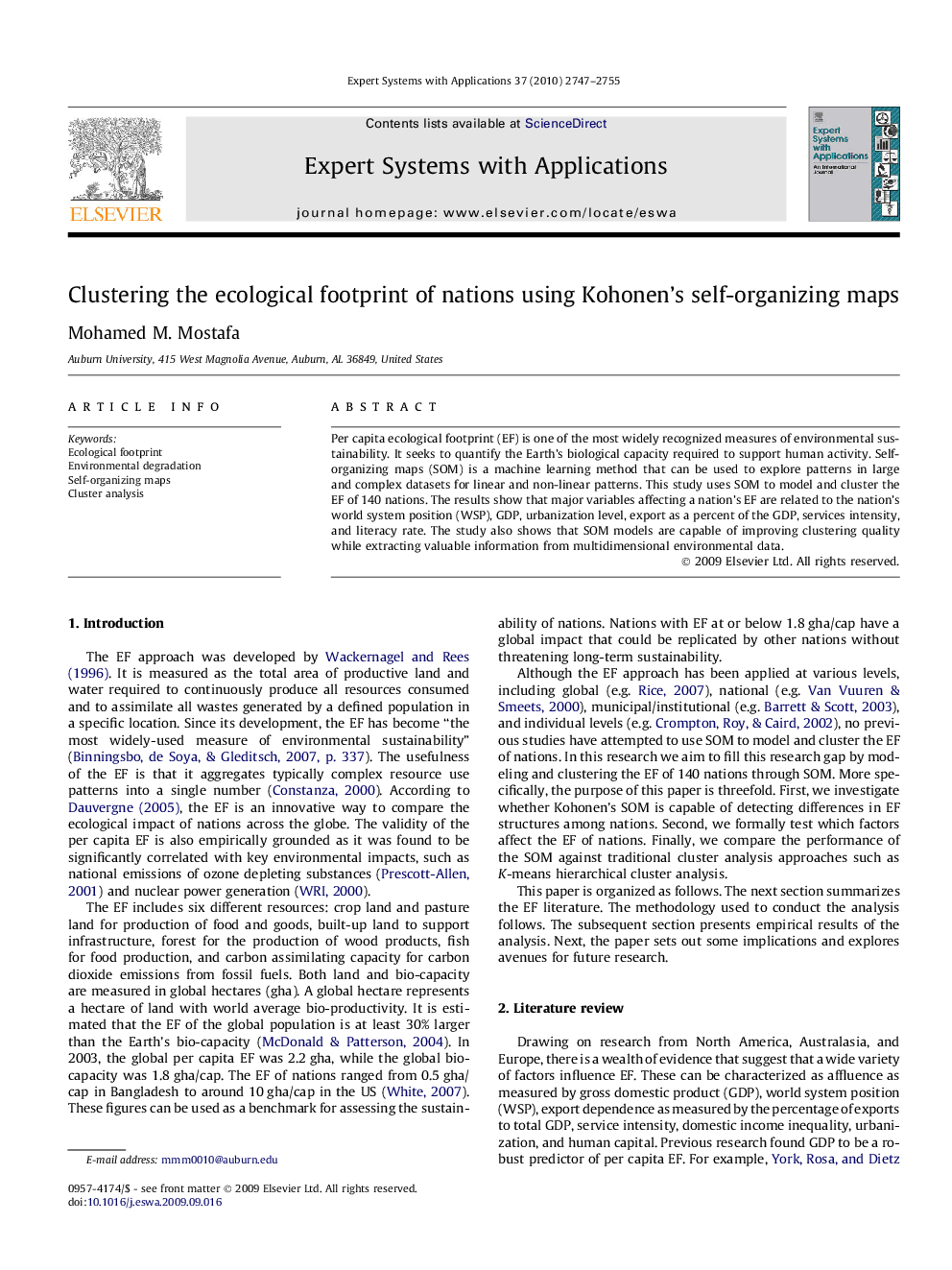| Article ID | Journal | Published Year | Pages | File Type |
|---|---|---|---|---|
| 388636 | Expert Systems with Applications | 2010 | 9 Pages |
Per capita ecological footprint (EF) is one of the most widely recognized measures of environmental sustainability. It seeks to quantify the Earth’s biological capacity required to support human activity. Self-organizing maps (SOM) is a machine learning method that can be used to explore patterns in large and complex datasets for linear and non-linear patterns. This study uses SOM to model and cluster the EF of 140 nations. The results show that major variables affecting a nation’s EF are related to the nation’s world system position (WSP), GDP, urbanization level, export as a percent of the GDP, services intensity, and literacy rate. The study also shows that SOM models are capable of improving clustering quality while extracting valuable information from multidimensional environmental data.
